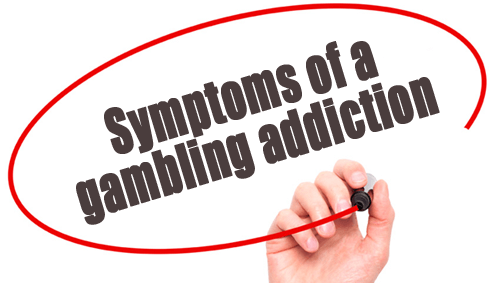Gambling addiction or gambling disorder is defined as persistent and recurring problematic gambling behavior that causes distress and impairs your overall livelihood. Book of fortune. Gambling addiction affects roughly 0.2% to 0.3% of the general U.S. Population, and tends to affects males more than females, though this gender gap has narrowed in recent years. Because gambling can cause depression, anxiety and self-harming tendencies, several physical signs are to be watched out for. Depression and anxiety sometimes lead to sleep deprivation, which may result.

Signs Of Gambling Problems
Wondering about someone you know that may have a problem with gambling? Look for some key signs:
Cool cat casino withdrawal problems. Silver oak promo code. Asking for/borrowing money from family
or friends
- Gambling 'stuff' (poker books, betting sheets)
- Unexplained debts or extra cash/possessions
- Unexplained time away from home, work, or school
- Behavior change (seems distracted, moody, sad, worried, etc.)
- Withdrawal from friends and family
- Less involvement with usual activities
- Unusual amount of time spent watching or checking sports scores & statistics or playing poker games or other casino-style apps
- Intense interest in gambling conversations
- Playing gambling-type games on the Internet
- Money or valuables are missing
- Using gambling 'lingo' in his/her conversation (e.g., flop, call, bookie, point spread, etc.)
- Selling personal belongings
- Bragging about winning
- Grades are dropping
- Lying, cheating, or stealing in school

Signs Of Gambling Problems
Wondering about someone you know that may have a problem with gambling? Look for some key signs:
Cool cat casino withdrawal problems. Silver oak promo code. Asking for/borrowing money from family
or friends
- Gambling 'stuff' (poker books, betting sheets)
- Unexplained debts or extra cash/possessions
- Unexplained time away from home, work, or school
- Behavior change (seems distracted, moody, sad, worried, etc.)
- Withdrawal from friends and family
- Less involvement with usual activities
- Unusual amount of time spent watching or checking sports scores & statistics or playing poker games or other casino-style apps
- Intense interest in gambling conversations
- Playing gambling-type games on the Internet
- Money or valuables are missing
- Using gambling 'lingo' in his/her conversation (e.g., flop, call, bookie, point spread, etc.)
- Selling personal belongings
- Bragging about winning
- Grades are dropping
- Lying, cheating, or stealing in school